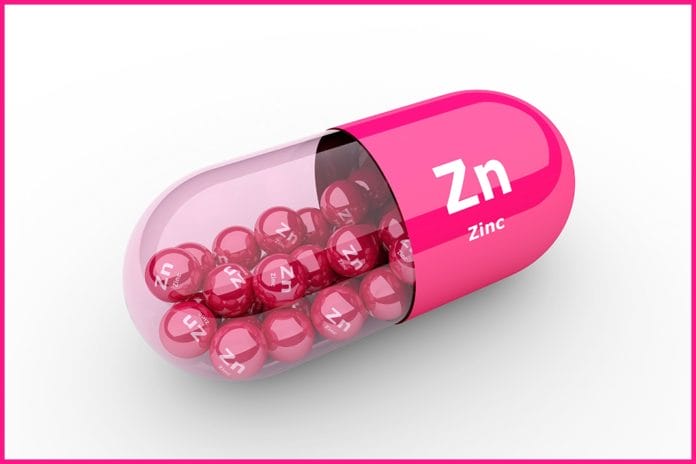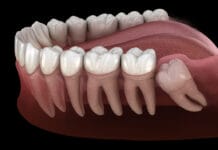You may have noticed lately that the shelves in the local pharmacies and retailers have been depleted of zinc supplements. News got out like wildfire on social media regarding zinc’s ability to help strengthen the autoimmune system. With COVID-19, many people are desperate to find new ways to keep their immune system strong, and are eager to try anything suggested on social media as a possible prevention for the virus.
Zinc is a nutrient found throughout the body and helps the immune system fight off bacteria and viruses.1 It is often taken (mostly in lozenge form) at the beginning of a cold to strengthen the immune system and shorten the duration of a cold.
When our bodies are low in zinc, supplements should be taken to boost the immune system. That’s why zinc is flying off the shelves during this COVID-19 crisis.
Zinc-Containing foods1
Looking toward other options to get our zinc uptake, consider getting it naturally from foods. This is where variety comes to play in our daily dietary intake.
Look at your breakfast cereal box, and you will notice that zinc is included as a supplement. For example, Mini-Wheats has zinc listed as 10% of your daily dietary value (DV). Add 3/4 cup skim milk to get an additional 5% of zinc. Cheerios lists zinc as 25% of your DV, and Ralston Enriched Bran Flakes lists zinc as 170% of your DV. Maybe it is a good time to eat cereal again − just try to avoid the overly sweetened brands.
Red meats (yes, red meats in moderation) should be included in your daily diet for naturally occurring zinc supplements, along with seafood such as crab and lobsters (perhaps a seafood salad for lunch?). Try to include oysters into your diet, as they are the best source of zinc, that is if you can stomach them. Personally, I will have to get my zinc via another source. Let’s not forget poultry such as chicken, turkey, or even ducks and geese (for those that love fowl).
Zinc can also be found in smaller amounts in whole grains (brown rice, wild rice, popcorn, oats, quinoa, whole grain-barley, wheat, and rye). Dairy products such as yogurt, cheese, cottage cheese, and ice cream also contain smaller amounts of zinc. I would, however, recommend unsweetened yogurt and avoiding the ice cream as a main source. Nuts and beans can also be included to this list.
Getting Enough Zinc?
Simply by eating a healthy diet, including a variety of the above foods will ensure that your body is getting enough zinc naturally.1 Some conditions, however, may cause a zinc depletion, and supplements become essential in keeping a balanced and healthy immune system.
Certain conditions cause the body to lose most of the zinc through the urine versus absorbing and uptaking through the body. Some of these conditions include Crohn’s disease, colitis, other digestive disorders, and even gastric bypass surgery. Let’s not forget bulimia in this list.
Vegetarians (since they do not eat meat) should consider adding zinc supplements up to 50% of the RDA. Considering that peanut butter is a common protein for vegetarians, it is important to note that peanut butter does not provide zinc to the diet.
Breast-feeding infants who are older should be given pureed meat as a zinc supplement, as breast milk does not have enough zinc for infants who are over 6 months of age. Even mother’s milk needs supplementing.
Drinking too much alcohol during the corona pandemic? Might want to rethink that since alcohol flushes zinc out of the body in the urine. Limit alcohol intake to keep up a healthy immune system!
Supplements
Check out the supplement facts on the back of your vitamins. On mine, zinc is listed as 15mg per serving, which gives you 100% of the recommended DV dosage. Chances are if you take a daily multi-vitamin, you are already getting enough zinc to support a healthy immune system.
At the first sign of feeling run-down, however, like a cold is coming on, taking a zinc lozenge may be a helpful boost to your immune system without overloading it. Read the label for dosage recommendations.
Can Zinc Cause Harm?
As we all know, too much of a good thing can become a bad thing. Too much zinc may make you nauseous, cause a loss of appetite, sick stomach, cramping, diarrhea, and headache. Excessive daily doses of zinc can backfire on you and actually cause your immunity to lower, your good cholesterol to decrease, and contribute to low copper levels.1
This being said, it is recommended to seek professional medical clearance prior to taking zinc supplements. If you check your diet closely, including your multi-vitamins and cereal, you may discover that you are already zinc sufficient. Read the nutrition fact labels.
What About Malodor?
As dental professionals, we should know all we can to help our patients who have halitosis, malodor, or “dragon breath.” Zinc-infused mouthwashes help prevent malodor. How does this work? Zinc blocks the bacteria from bonding to surface proteins, preventing sulfur gas (aka bad breath!).
In conclusion, during this corona pandemic, you most likely do not have to run out and clear every store shelf of zinc if you are eating right and taking a multi-vitamin. Keep the zinc on the shelves for those people who truly need the supplement to keep their body in homeostasis. When you get back to the dental office, review health histories to monitor for issues that could cause a deficiency in zinc, and educate your patients about the importance of taking multi-vitamins and eating healthy. Having an available list of naturally occurring zinc sources would be a nice educational handout for your patients.
Now Listen to the Today’s RDH Dental Hygiene Podcast Below:
Reference
- Zinc. National Institutes of Health (NIH). Retrieved from https://ods.od.nih.gov/factsheets/Zinc-Consumer/












